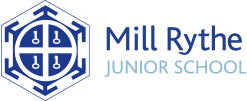An analysis of reading responses in class and in national tests revealed a significant gap in vocabulary understanding. For pupils to acquire and deeply learn new vocabulary, volume and variety of reading is crucial, along with repeated exposure, overlearning and pre-teaching. Our pupils are exposed to a wide range of reading material and text types across our curriculum, and encouraged to read regularly in order to build stamina and fluency.
We want to encourage our pupils to be inquisitive about vocabulary, to continue to grow their own vocabulary repertoire and to develop their ‘word consciousness’. Language-rich pupils are effective communicators and strong comprehenders. Vocabulary acquisition is not finite: it’s a lifelong, ongoing process. We want to develop active readers with an interest in words and language, who possess the tools and strategies to seek out the meaning of unfamiliar vocabulary.
Poetry
Poetry is a fantastic way of exploring vocabulary and language. We learn a poem a term with all children able to recite it by heart. Over a child’s 4 years at Mill Rythe, they will have been exposed to thousands of new words and will be able to recite 12 new poems.
Reading Lessons
Many of our lessons have a vocabulary focus, where vocabulary choices are explored in depth and alternative choices are discussed. Our Close Read sessions begin with an exploration of new and unfamiliar vocabulary to aid understanding.
Writing Lessons
Following the Hampshire Writing Model, each writing unit explores language using the ‘Stimulate and Generate’ aspect, which leads to rich writing outcomes.
Capturing Language
All classrooms have a vocabulary display board, where children capture interesting and new vocabulary that they have encountered in their lessons and can then use in their writing.
